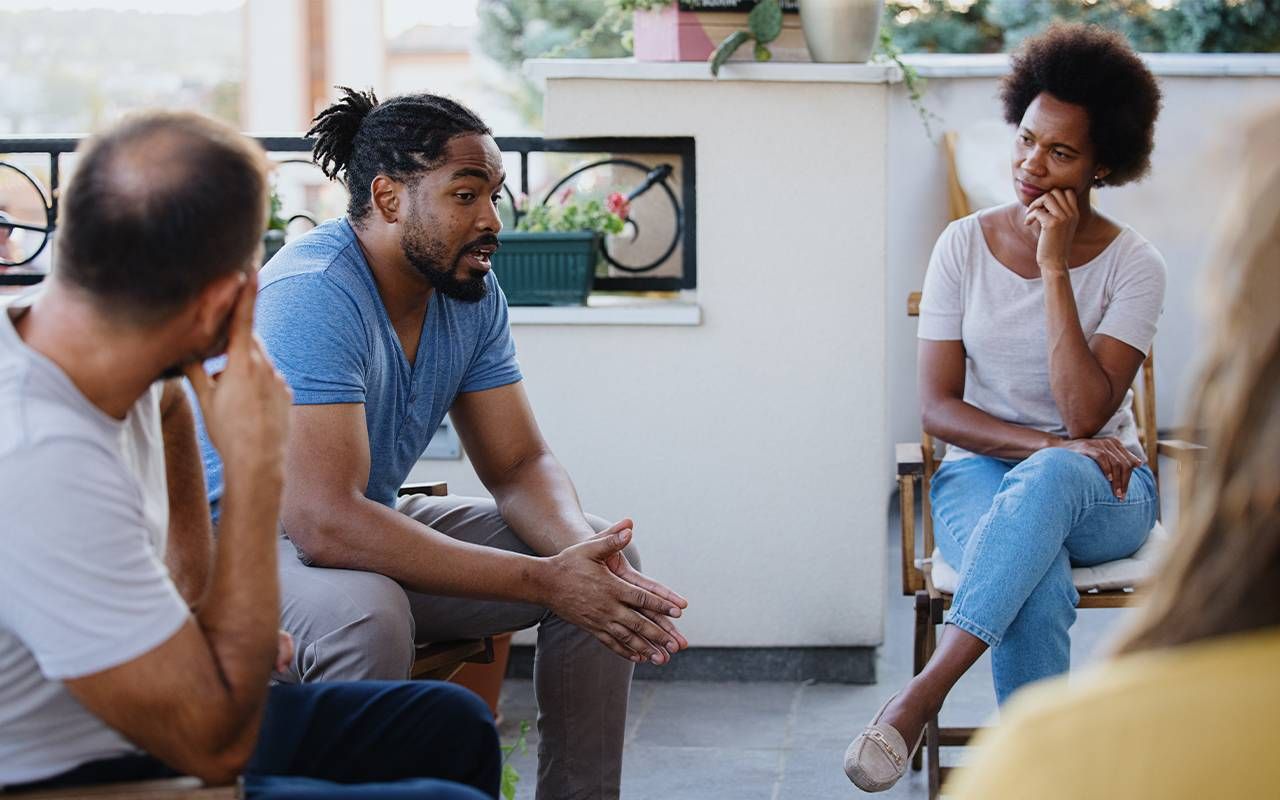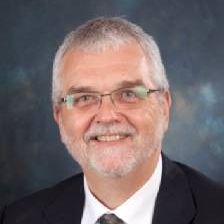Support Groups Link Survivors of Suicide Loss
Support groups offer a safe space where participants can hear the stories of others, and find that the burden of grief can be shared
After the death of a loved one by suicide, surviving friends and family members often find themselves lonely and without the resources necessary to ground their grief. Support groups have been demonstrated as helping to navigate this difficult, challenging course.

By design, a support group seeks to provide individuals with an improved sense of capacity, enhanced coping skills, self-esteem and social support. Such groups are defined as gatherings of people with similar histories, aimed at bolstering their understanding of a common problem — in this instance, suicide.
Those who attend receive support, encouragement and comfort through companionship with group members.
Through the sharing of experiences, the meeting of people offers a safe place to gather information designed to be practical, constructive and helpful through mutual conversation over troubles, tensions and regrets. Those who attend receive support, encouragement and comfort through companionship with group members. Ultimately, a support group allows for collegiality, which reduces loneliness and isolation.
The SOS Program
Since the mid 1970s, the Link Counseling Center, in the Atlanta suburb of Sandy Springs, Georgia has offered the SOS Program – Survivors of Suicide. The program is a peer-led set of mutual support groups for those individuals and families living and struggling with the loss of a loved one who died by suicide.
Ginny Sparrow is the director of the SOS program at the Link. "Suicide loss is different from others' deaths," she said. "SOS was created because it needed its own space. Survivors feel easily judged when dealing with their grief; suicide holds a great deal of social stigma which compounds and complicates the feelings of loss for loved ones."
According to Sparrow, the group meets three times each month and is offered at no charge to those who participate. Free grief consultation by mental health professionals is provided as needed, and a licensed practitioner sits in on every meeting to assist the group's process.
"There is proven value in hearing others' stories. Sharing the burden of grief provides comfort. Knowing that a person isn't alone in their loss is relieving. I find it particularly helpful in dealing with the 'what ifs' of grief and suicide," she said. "There are hard questions: 'What if I had gotten help sooner? What if I had known how the life-and-death struggle advanced to such a dangerous expression?'"
She continued, "In the group, members hear things each might wish they had done, things that others did to answer many of the 'what-ifs' ... and there was still loss of life. We learn that nobody has the power to save someone's life, as much as we might wish. The SOS group helps to neutralize the grandiose feeling we hold about ourselves that we could have saved our loved one. All we can do is all that we did."
How Support Groups for Survivors of Suicide Work
A mutual support group is confidential; everything shared within the group stays in the group. A good support group feels like a good fit.
As Sparrow said, "This type of group is not for everyone. We ask a person to come three times before they decide if it works. The essence of the group is to share stories in a safe, non-judgmental space."
Every support group functions a bit differently and as Sparrow noted, time is needed to tell if a particular group is a personal fit. There are general benchmarks that allow for a thoughtful evaluation:
"We ask a person to come three times before they decide if it works."
- A support group has clear rules about who can attend. For the SOS group, it is stated that the purpose of the group is to help survivors of suicide heal.
- The group facilitator will put all participants at ease, even newcomers who can be anxious about coming to a group of strangers sharing similar experiences. A good facilitator will be welcoming and outline expectations.
- The group has an organized structure. Most support groups have four components: a facilitator’s welcome, followed by an opportunity for personal introductions by participants, group discussion, and finally, a formal announcement to end the meeting.
- There are clear guidelines. Rules and expectations allow for safety in the group. The facilitator will discuss concrete means of demonstrating respect, empathy and boundaries of privacy and confidentiality.
- The facilitator helps the group stay on track. A seasoned facilitator will know how to hold boundaries and stick to a schedule while giving each participant an opportunity to speak. The facilitator weaves common themes within the group that inspire productive conversation and discussion. A good facilitator is attentive to any emergency and knows how to effectively respond.
Sparrow thoughtfully underlined the theme of the Link's SOS program. "We want to hold the truth that there is hope. The group's goal is to help a loved one transition their relationship with the deceased from the literal to the spiritual. Even though they aren't with us anymore, their spirit is in good and loving hands."
Find a Support Group Near You
To find a suicide support group in your area, visit the American Foundation for Suicide Prevention and enter your zip code to find the nearest group. Virtual support groups are also available.
If you know an older adult is in immediate danger of taking their life, take them to an emergency room, or call the National Suicide Prevention Lifeline at 800-273-8255. 988 is a new universal dialing code to broaden access to suicide prevention and crisis services. Dialing 988 connects people in crisis directly to the Suicide Prevention Lifeline, where counselors provide free, unbiased, and confidential support 24 hours a day, seven days a week. Dialing 988 is the same as dialing 911 for emergency response. There is no reason to dial any other digits besides those three.
Editor’s note: "Facing Suicide" is a new PBS documentary exploring the personal stories of Americans impacted by suicide, and journeys to the frontlines of medical and scientific research to meet those working to help people at risk. "Facing Suicide," narrated by Josh Charles ("The Good Wife") is streaming on PBS.


